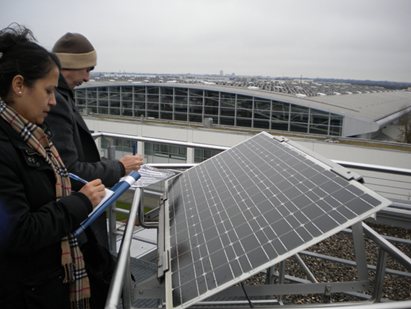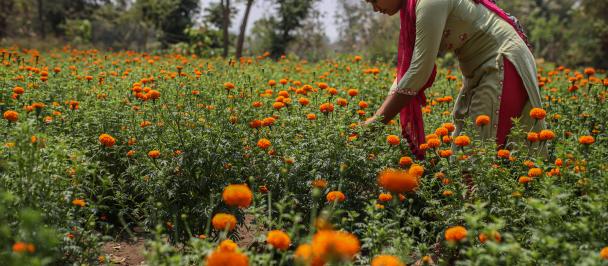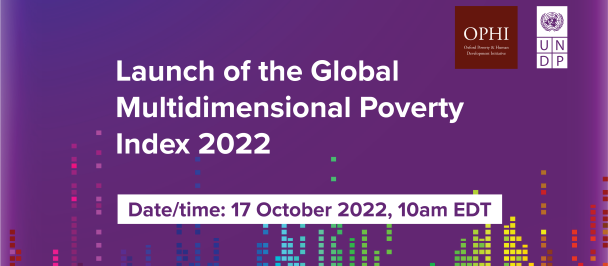Sustainable Energy Financing Mechanism for Solar Photovoltaic Systems in Forest Villages in Turkey
What is the project about?
The project will assist Turkey with the promotion and financing of on-grid, solar PV in forest villages in Turkey, with special focus on a cooperatives model. The public support and involvement in the initiative is led by the Department of Forest Village Relations Department (ORKOY), working together with other key actors in the solar PV value chain, including private sector solar PV installers, Turkish utilities, and domestic and international banks as well as other institutions that provide financing.
The project objective is to support the successful launching of a sustainable energy financing mechanism within the ORKOY credit mechanism to ensure that there is at least 30 MW of installed capacity of grid-connected, cooperative solar PV in forest villages) by the end of the project; 28,750 tons CO2eq avoided emissions from the power sector (compared to the project baseline) by the end of the project; 30MWp cumulative installed capacity of grid-connected PV systems; 47,520,000 kWh/year cumulative total electricity generation from installed grid-connected PV systems and 450 created job positions for forest villagers. The project has 3 components: 1- Developing and expanding the policy and institutional framework to promote on-grid, residential solar PV, 2- Demonstrating the technical and economic viability as well as the business model of the ORKOY sustainable energy financing mechanism for solar PV systems through 4 pilot installations, 3- Scaling up and replication at the national level. The financing scheme will be divided on 4 phases. The first one will use grants only for financing of the pilot sites installation; second phase will use combination of GEF and ORKOY grants and ORKOY soft loan; third phase will introduce commercial loan together with GEF/ORKOY grants and ORKOY soft loan and the last phase will use deferred supplier payment tool in combination with ORKOY grant/soft loan and commercial line of credit.
What has been the situation?
In Turkey, villages that have some forest landscape within their official boundaries and/or nearby a forest area are designated as forest villages. The population of forest villages is around 7,332,000, representing 9.6% of the entire country’s people and 35% of the rural population. This population is distributed around the country across 21,549 villages. They account for the poorest section of Turkish society with an average gross annual income in 2004 of $400 compared with a national average of $5,780.
From the perspective of the impoverished forest communities that account for 1 in 10 Turkish people in 21,549 villages, there is little evidence of legislative concessions that can help them break out of their vicious cycle; the poor are deemed high-risk and are thus penalized through lack of access to affordable financing to help them out of their predicament. Many renewables incentives, such as FiTs, primarily favour the wealthy that have money to invest in the first place. A scheme such as this project, combined with activities to improve legislative practices, would help kick-start the industry and give some of the neediest people in Turkey access to green energy – helping mitigate climate change whilst assisting in the plight of these poverty stricken forest villagers.
What is our mission?
Our mission is to promote solar photovoltaic power plants in forest villages by implementing the financing models proposed under the Project and in this way to increase the installed solar power generation capacity of Turkey.
How are we doing this?
The objective of the project is to increase the use of grid-connected photovoltaic systems as a sustainable means of generating electricity in the forest villages in Turkey by at least 30 MW by the end of the project. The project will pursue this objective by establishing a Sustainable Energy Finance Mechanism under ORKOY.
- Component 1 of the project is focused on developing and expanding the policy and institutional framework to promote on-grid, residential solar PV ;
- Component 2 is focused on demonstrating the technical and economic viability as well as the business model of the ORKOY sustainable energy financing mechanism for solar PV systems; and
- Component 3 will focus on scaling up and replication at the national level.
Detailed information on the outputs under each Component is included in the Project Document.
How will Turkey benefit from the project?
The project will assist Turkey with the promotion and financing of on-grid, solar PV in forest villages in Turkey, with special focus on a cooperatives model. Innovative public-private business models will be developed and implemented to provide affordable residential solar PV to forest cooperatives. The public support and involvement in the initiative is led by the Department of Forest Village Relations Department (ORKOY), working together with other key actors in the solar PV value chain, including private sector solar PV installers, Turkish utilities, and domestic and international banks as well as other institutions that provide financing.
The Project will promote an additional investment in PV technologies of at least 30 MW, which will increase the total installed PV generation capacity of Turkey by around 1%.
Currently, there has been no major emphasis of the ORKOY Social or Economic Credit programme on supporting renewable energy power generation projects (except the solar heating campaign) and the capacity of ORKOY staff to support such activities is insufficient. The Project will not only ensure that the ORKOY legislation supports renewable energy projects but also support ORKOY to build necessary capacity.
First of all, the Project prioritizes social development, and therefore, will encourage employment of women in operation, maintenance and cleaning of PV plants to be installed in forest villages.
Our partners and stakeholders:
Partner/Stakeholder |
Relationship with the Project |
Ministry of Forestry and Water Affairs (MFWA) |
Ministry of Forestry and Water Affairs (MFWA) is the organization that is responsible from management and protection of natural resources including forests and water resources in Turkey. MFWA has six general directorates operating in different subjects: State Hydraulic Works, Nature Conservation and National Parks, Forestry, Water Management, Combating Desertification and Erosion, State Meteorological Service.
General Directorate of Forestry (GDF) is the organization responsible from management, development and protection of forests in Turkey. Organization’s mission is to protect forest resources against any threats and danger, to develop forest resources in a nature-friendly manner and to achieve sustainable forest management at a level that will provide far-reaching sustainable benefits for society in ecosystem integrity. Project beneficiary ORKOY is a department working under GDF. |
Forest and Village Relations Department (ORKOY) |
Working under General Directorate of Forestry (GDF) of Ministry of Forest and Water Affairs, ORKOY has a long history of working with people living in and around forests. ORKOY, GDF will be the Executing Partner of the GEF Project and will provide the soft loans necessary to make sure that the projects are successfully implemented. The ORKOY was founded in 1970 and has gone through several organizational changes. Up to recent years ORKOY was itself a General Directorate but following changes in the structure of Ministry of Forestry and Water Affairs it has been placed under GDF as a department. ORKOY aims to contribute to the conservation of forests through supporting the local communities. ORKOY has been operating a grant/loan program since 1974 targeting the forest villagers. Main duties of the organization are: · To support socio-economical development of forest villagers; · To undertake inventories and researches as well as planning projects and implementation; · To develop and implement projects on decreasing the wood consumption and alternative energy resources; · To support the industry on wood and non-wood related product; · To direct all sorts of loans and support mechanisms to forest villagers; · To enable efficient use of products through supporting cooperatives on a project base; · To undertake village transfer related tasks according to law no 2924. |
Domestic and International Banks (private sector) |
Initially, it is expected that domestic and international banks would have no role in the project as they cannot compete with zero interest soft loans from ORKOY. However, the ORKOY soft loan programme (initially US $45 million) is not going to be large enough to cover the financing needs for solar PV for all forest villagers and over time technology and financing costs are expected to come down. Therefore, under component 3 of the project it will be important to bring in domestic and international banks to see how they might provide financing for further investment in solar PV systems for forest villagers. DenizBank, one of the private banks in Turkey has a financing scheme for solar PV projects for private sector. During the stakeholder consultation meetings of the PPG period a meeting was held with DenizBank team. The Bank has a good experience on solar PV projects and financing in Turkey that can contribute to the Project implementation. Moreover, DenizBank has been working with agricultural cooperatives that have similar structure with forest cooperatives. Moreover, several public banks in Turkey (mainly Ziraat Bankası and Halkbank) have a long history and great experience on supplying credits to farmers and villagers. Their contribution to the project in terms of establishing financial structures can be a positive asset. |
Solar PV installers/manufacturers (private sector) |
The role of the solar PV installers/manufacturers will be to install and maintain solar PV equipment for forest villagers who will have successfully obtained financing either from the ORKOY soft loans or later from domestic and international banks. The solar PV installers should benefit from the fact that this project will lead to greater interest and uptake in solar PV systems. In Turkey, the domestic solar PV installers and manufacturers have been increasing during the last years. They are mostly the members of the GUNDER (see below). Private sectors role on policy making is a key asset for the project. |
International Solar Energy Society – Turkish Section GUNDER |
International Solar Energy Society – Turkish Section (GUNDER) is the umbrella organization of solar PV companies in Turkey. The aim of the society is to promote all activities directed at the better utilization of solar energy. Since GUNDER is an umbrella organization serving not only governmental bodies but also private sector, GUNDER is a partner of the GEF project. Some of technical support activities will be implemented by GUNDER along with capacity development activities for sustainable energy finance program, through a project cooperation agreement with UNDP. They will be a co-financer of the project and contribute to the project activities. |

 Locations
Locations



